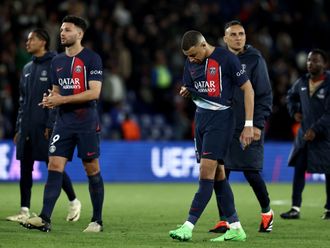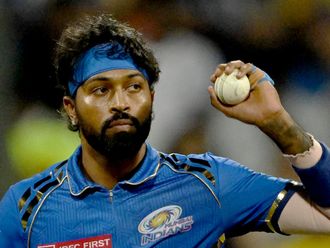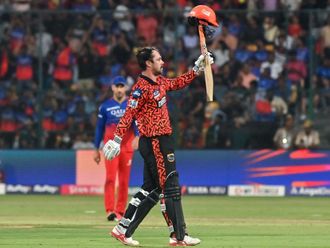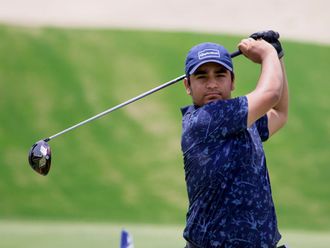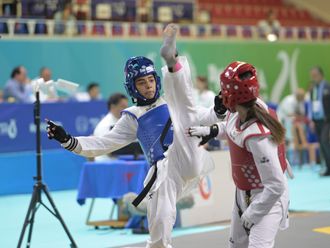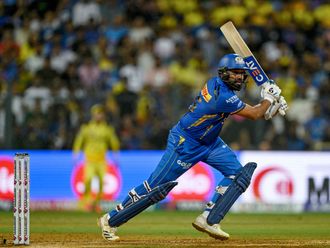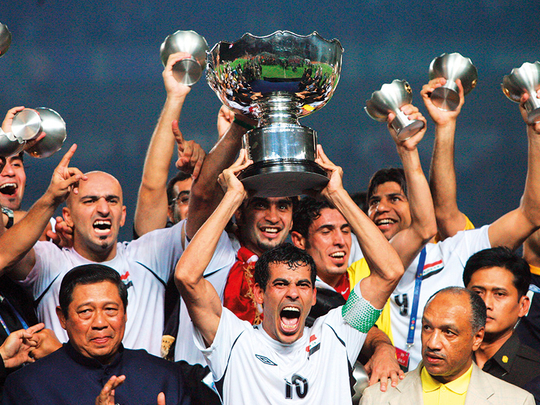
Dubai: Jorvan Vieira, the coach who led Iraq to the 2007 Asian Cup 10 years ago this Saturday, says the triumph had everything to do with overcoming the adversity of war.
But, he adds, even in times of relative peace, the Lions of Mesopotamia can still replicate that feat, especially now that Fifa have lifted a ban on holding matches inside the country.
Four years after the allied invasion and with fighting still ongoing, Vieira’s Iraq pulled off one of international football’s greatest fairy tale upsets beating the likes of Australia, South Korea and Saudi Arabia on their way to lifting the title in Jakarta.
It brought a nation divided on sectarian lines together again and lifted spirits in times of despair.
“Ninety-five per cent of that group had lost relatives or friends,” Vieira told Gulf News from his home in Abu Dhabi this week. “All were in shock, stressed and afraid because they couldn’t see the light at the end of the tunnel.
“We built a family because it was a moment to do so. But, what can you say to someone who has lost everything? There are no words, all you can do is cry with them, but I couldn’t cry, because it would have brought us all down, and they would have seen that I was weak.
“So, I just said: ‘Your country is at war but we cannot do anything because we are not soldiers, but we will be soldiers on the field and bring a smile to the lips of the Iraqi people because this is what they need, they are tired of crying,’ this was our mission and this is what we did.”
Taking over just two months ahead of the tournament, Vieira, 63, born in Rio to a Portuguese father and Brazilian mother — quickly went about adding Asian Cup win bonuses into his and the players’ contracts, much to the amusement of the Iraq Football Association. “The president laughed and said they’d never passed the quarter-finals before, but I said ‘we are going to the final, I guarantee you’. He just smiled and said ‘OK, no problem put whatever you want’.
“It was the first step in my success with Iraq. I had this positive feeling from the beginning. I knew we would do something if we worked hard because I knew the quality of my players and I trusted in myself.”
Vieira, a Muslim not only by marriage to his Moroccan wife, but from his experiences living in the Middle East — admits he couldn’t relate to the player’s suffering, but his time as an officer in the Brazilian army patrolling against guerrillas on the Venezuelan border had given him some idea of what to expect.
“It wasn’t the same. In Baghdad I was given a gun to carry in my pocket and told to protect myself, and from that moment on I was like ‘wow, now I’m in a war’, but I couldn’t give the players any examples from my own life about how to overcome this, I just had to be a father and a friend.”
What his time in the army did give him though was discipline, and it was this, that helped him forge a team, often only getting three hours sleep during preparation, not only because there was so much work but also through worry — three coaches had turned down the role before Vieira because of death threats.
“Discipline was my first word. It didn’t matter what sect you were, if you didn’t have discipline I’d kick you out. That was my only politics and I was clear to them from the start.
“No one can stand on the shovel and earn their millions, there’s no lottery. Without hard work you won’t get your prize.”
After the triumph, the master of seven languages, was given Iraqi citizenship to add to his Brazilian, Portuguese and Moroccan passports, but he’s yet to collect the document. He did return to manage Iraq briefly for the 2009 Gulf Cup, but the desire necessary to win wasn’t the same. Iraq finished bottom of their group and Vieira was sacked.
“The players were in another stage of their life, most of them had gone abroad after the Asian Cup win and had started to earn good money and give good conditions to their families, they were also working in a different way with their new clubs.
“Too many things had changed in two years, I expected to find the same group with the same motivation and atmosphere, with the wish to do the same, but life wasn’t more difficult than before. I don’t regret it though, and even if they called me again I’d go back because Iraq is in my heart.”
If desire is related to adversity, does this mean the current Iraq side can’t repeat what they achieved in 2007? “No, everything is possible in life. The only thing you can’t fight is death.
“I believe now with better structure and organisation and with Fifa allowing matches to return to Iraq, they can develop the league and better motivate the players.
“They were an island with no boat before, but with Fifa’s decision they’ll be more motivation, sponsorship, credibility and financial support and the league will be much better.”
What of Vieira now? “I’m about to leave the UAE after eight years to return to Portugal with my wife and son,” said the former Kalba, Bani Yas and Sharjah coach.
“I’ve had some offers but nothing of interest professionally. It’s not about money, but the conditions to work and develop. If I get an offer, I’ll come back alone, but I only want to work for another two or three years max, before becoming a technical director.”
Iraq wasn’t Vieira’s only major accomplishment. He was also the assistant coach of Morocco when they became the first African nation to progress beyond the group stages of a World Cup at Mexico ‘86.
They finished above England, Poland and Portugal, before a 1-0 defeat to eventual losing finalists West Germany in the quarters. Vieira was widely credited for that run even by then Moroccan head coach Jose Faria.
“Football-wise I have so many highlights, but Iraq gave me notoriety. Everyone knows me because of the Asian Cup. I’m just glad to have been important some way in making the Iraqi people happy.
“I do my best, I’m not the best, but I put 100 per cent into my work and my job is my family, my family are my second family. I’m most proud of the way we were able to build a strong relationship and make everyone aware of their jobs for the bigger job of reaching the championship, and we are all still in touch to this day.”





